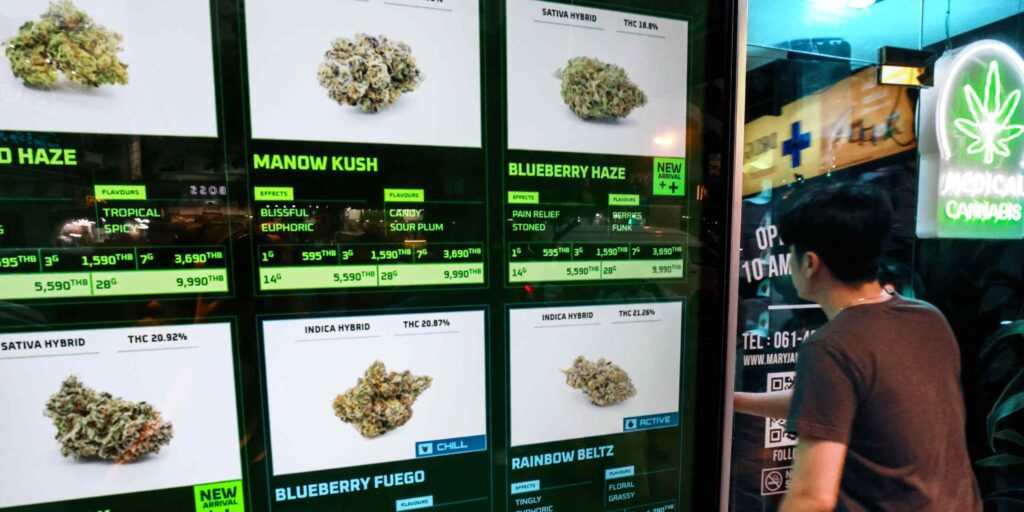BANGKOK — A significant debate has emerged in Thailand as the ruling Pheu Thai party pushes to reinstate cannabis as a narcotic. This initiative has caused a divide within the coalition government, specifically with its largest partner, Bhumjaithai, which played a key role in the marijuana decriminalization movement two years ago. As the government seeks to regulate cannabis effectively, it faces the challenge of balancing public health concerns and the burgeoning cannabis industry.
The Push for Cannabis Regulation
In anticipation of a critical meeting by the narcotics control board later this month, the Ministry of Public Health has advised that cannabis be moved back to the Category 5 list of controlled substances. This category is known for including other potent substances such as:
- Psychedelic mushrooms
- Opium
- Various research chemicals
Such a decision could have far-reaching implications for both medicinal users and fledgling cannabis businesses. While the Pheu Thai party aims to safeguard public health, it’s essential to consider how this move might impact the efforts to promote cannabis as a legitimate industry.
Stakeholder Perspectives
The proposed regulatory change has drawn mixed reactions from various stakeholders:
– **Pheu Thai Party:** Advocates for public health and aims to alleviate concerns about cannabis abuse.
– **Bhumjaithai Party:** Fears that the legislation could undermine the progress made in cannabis decriminalization and restrict the growing industry potentially.
As discussions unfold, both parties are compelled to engage in constructive dialogue, weighing the benefits of cannabis in medical applications and economic opportunities against the possible risks of abuse and dependence.
A Regulatory Framework for Cannabis
Sustainable regulation is critical for both the safety of the public and the growth of the cannabis industry. The government aims to establish a clear framework that includes:
– **Licensing Procedures:** Ensuring that businesses meet quality control standards.
– **Public Education:** Raising awareness about responsible cannabis use.
– **Research Funding:** Supporting studies on the medicinal benefits of cannabis, which could inform future regulations.
Community Impact
Ultimately, the success of any new regulations will depend on community engagement. Here are some ways the public can get involved:
– **Public Forums:** Attend town hall meetings to express opinions and concerns.
– **Surveys and Feedback:** Participate in surveys conducted by government agencies regarding cannabis use and regulation.
– **Educational Workshops:** Engage in workshops to learn about the implications of cannabis laws.
As the dialogue continues, it’s crucial for all parties involved to prioritize a balanced approach that fosters both public health and a thriving cannabis sector.


